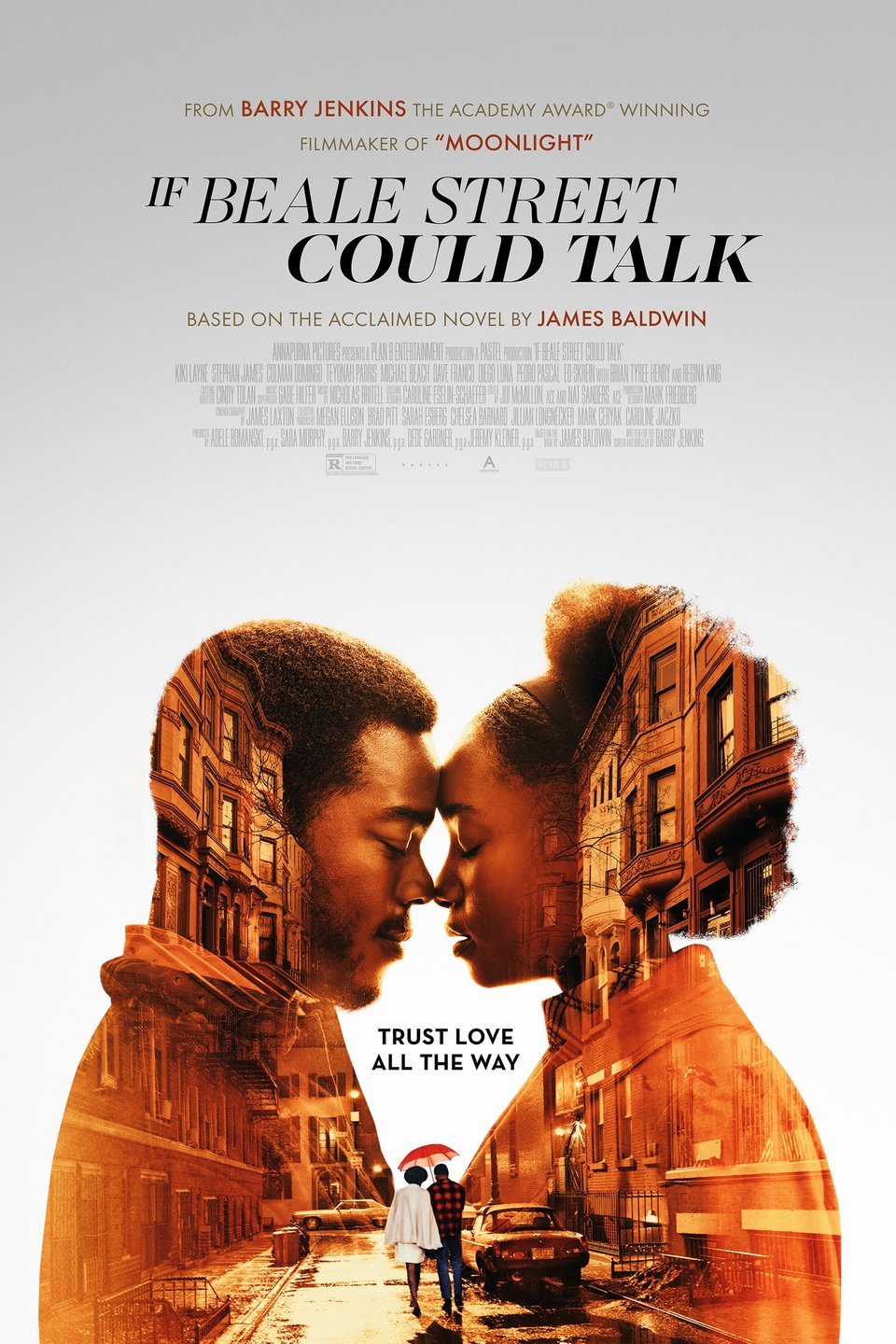
The Cherry on top of the killer sundae that was Black Cinema of 2018.
Barry Jenkins’ directorial style has been described by some as “cinematic poetry” and while such a descriptions is fairly apt in describing his 2016 Oscar contending reflection on life, love, and hardship “Moonlight,” “If Beale Street Could Talk” may demonstrate the weight his craft lends to his storytelling even better than his exceptional best feature award winner.
Fonny Hunt and Tish Rivers’ romance, set in the mid 20th
century amid high racial tension in America, takes a tragic turn as Fonny finds
himself on trial for a sexual assault that he didn’t commit, facing a jury apathetic
to his plight and a judicial system stacked against him. As he struggles to
survive prison, Tish fights to keep his spirits strong and her family together
while preparing for the birth of their child in hopes that justice will prevail.
The oppressive bleakness tinged with hope and overcoming of
adversity of the James Baldwin novel from which the film is adapted displays
the struggle of an institutionally persecuted minority culture that is sympathetically
tragic yet very matter of fact.
Although the world that these characters occupy is a
realistically harsh and unforgiving one, the film is never without moments of
respite, taking solace in the little moments of pleasure, joy, and beauty that
life has to offer even if it gives cause for reflection on the tragic state of
things.
Fonny reflects upon the prison sentence of his friend, a man
who served years for an alleged grand theft auto despite the fact that he didn’t
even know how to drive because taking the plea deal for it was easier than
facing the stigma of a completely unrelated charge for possessing marijuana
before shifting gears to comfort the man with lighter subject matter and an
offer of another beer.
Even watching the two hunt for a place to live, leading them
to a potential loft that the audience knows will tragically fall through is
laced with a sincere sense of relatability and optimism that only draws you
further into their plight in hopes of seeing them overcome.
In “If Beale Street Could Talk,” Jenkins manages to combine
the intimacy of theatre, the scope of cinematic editing, and moving cinematography
choices to tell a human story about struggle, injustice and the worth of life
in the face of its ugliness that displays masterful filmmaking on a technical
level but especially draws attention to the power of the script and the
stupendous round of performances offered by his cast.
Regina King’s acclaimed performance as Tish’s mother very
much delivers on its hype, as her strength and conviction never fails to not
only convince but balance out the warmth she aims to consistently project
towards those she cares for. Stephan James also manages to hammer home the
tragedy of Fonny’s plight considering his assertive but soft spoken nature as
an artist denied what he loves and what inspires him due to the farce of the
justice system.
The cast is additionally littered with character actors and
upcoming stars who utilize their presence to powerful effect but if there’s
anybody who should be receiving more attention, it’s Kiki Layne.
The layers that she has to carry between tenderness,
softness, sorrow, and determination that she manages to switch in and out of on
the fly with just enough dialogue to force her to make every line delivery
count is central in holding such a strong film together and is hopefully the beginning
of a prosperous career.
9 Beautiful Tragedies out of 10
No comments:
Post a Comment